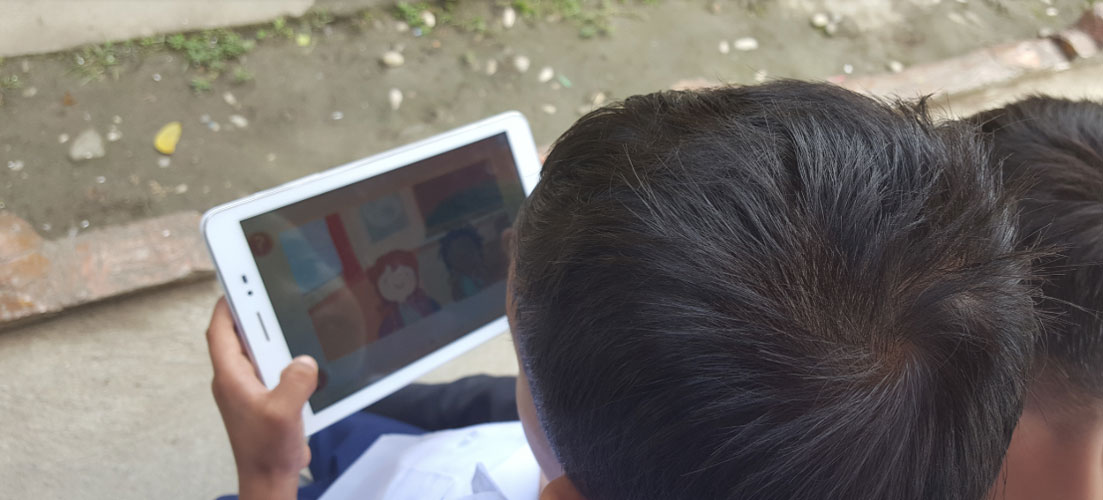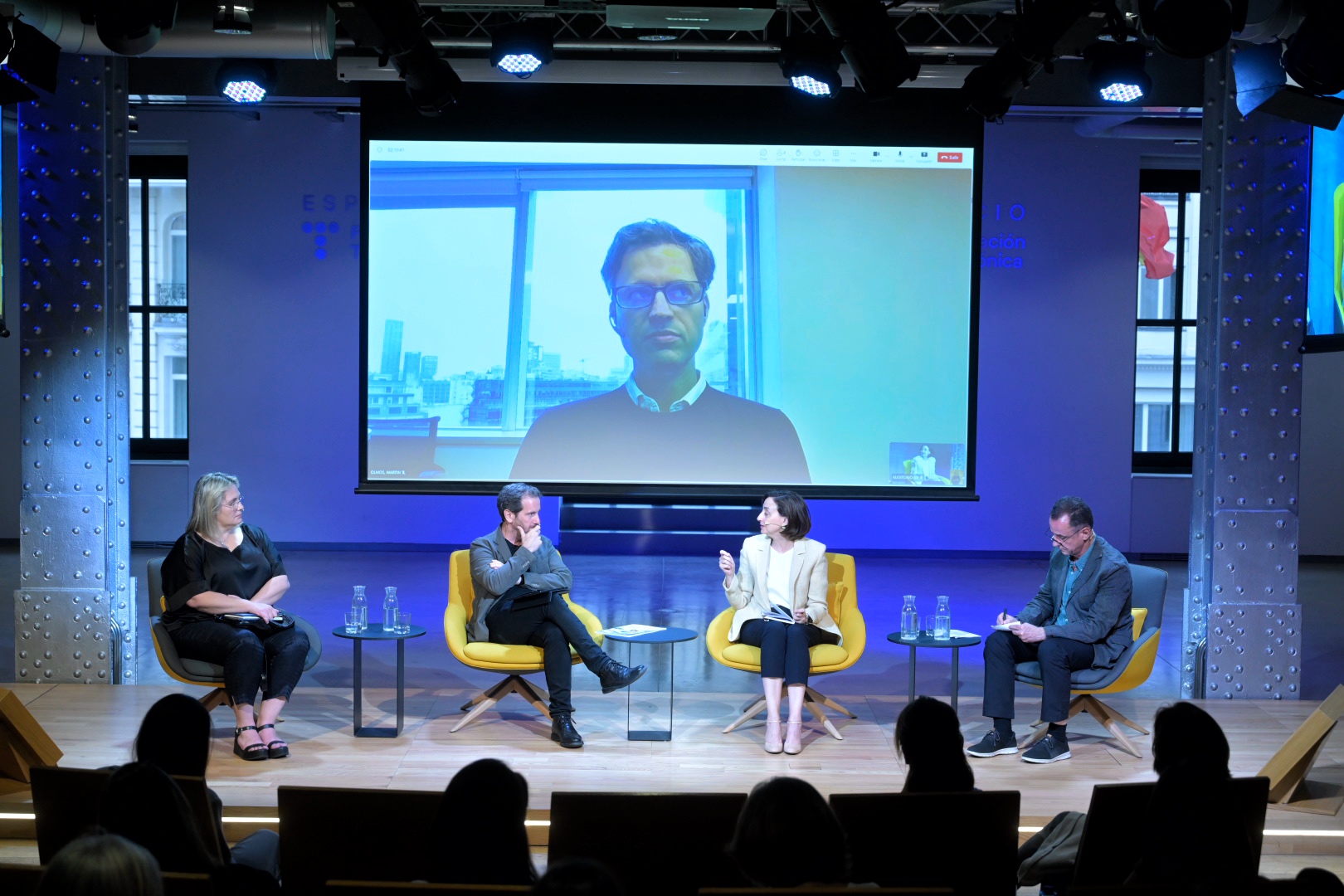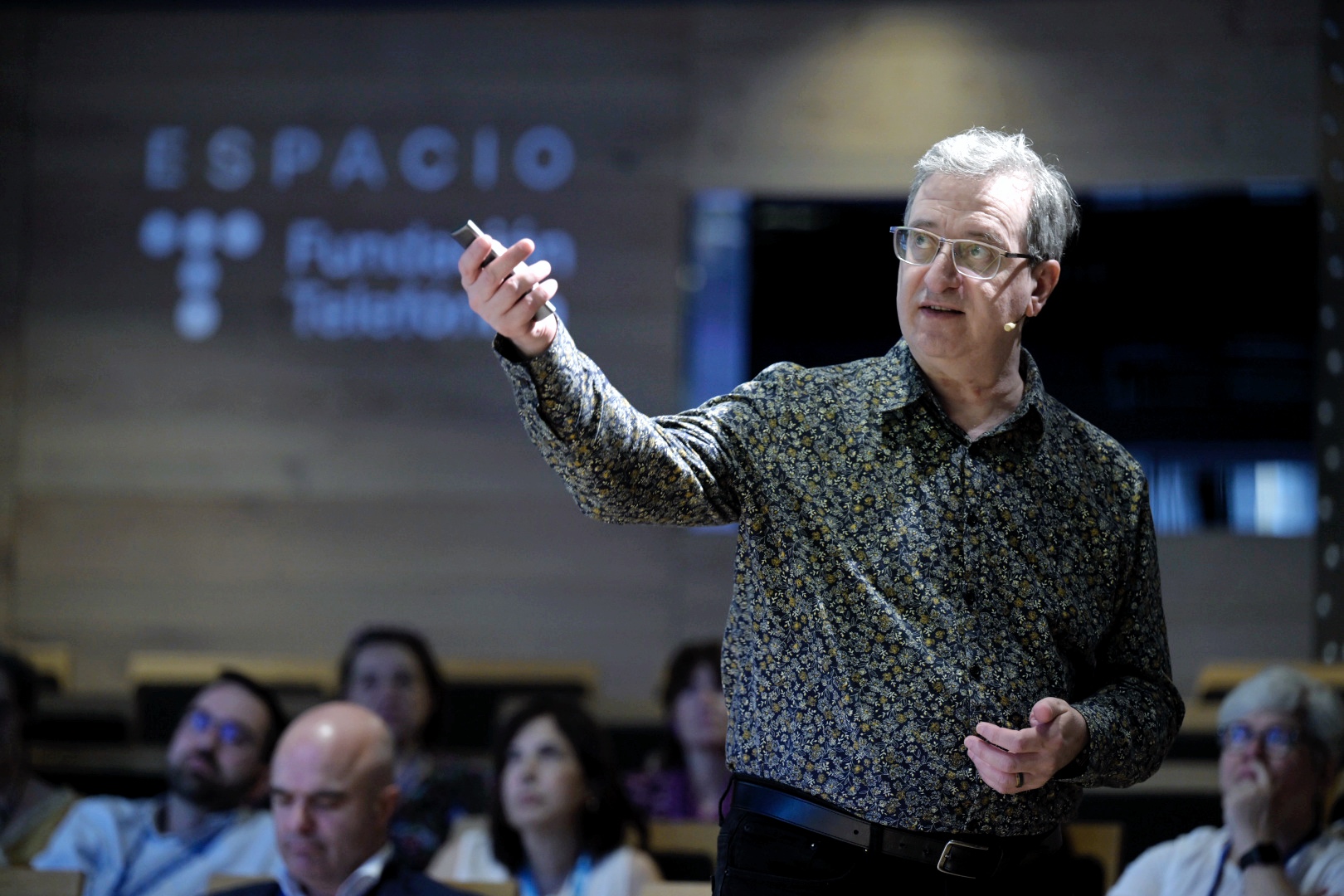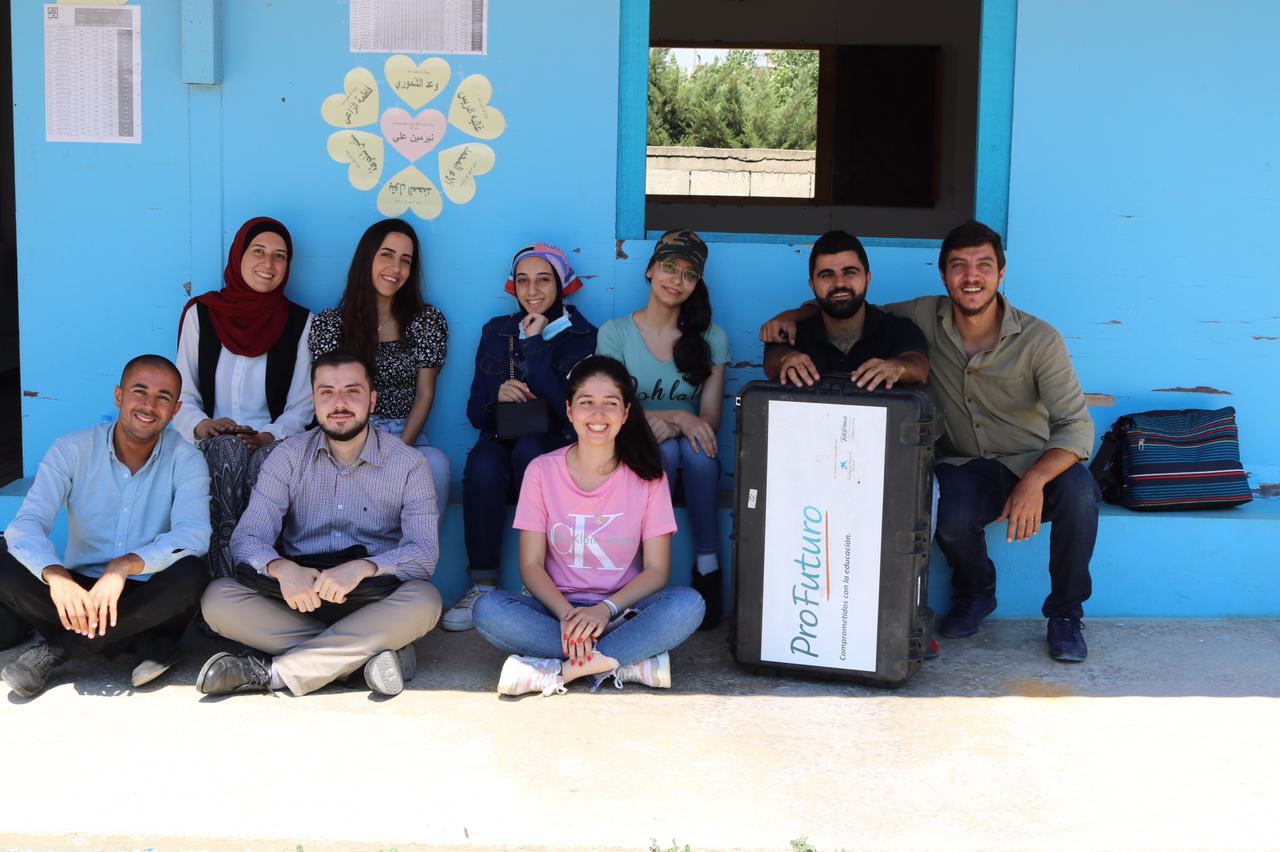
The initiatives submitted by the start-ups, Cerebriti (Spain), Eedi (Great Britain), and UBBU (Portugal), were the winners of the program, “Challenges in education, ProFuturo environment”. The call for projects was launched by ProFuturo with the support of Wayra, an open innovation hub that connects technology start-ups with Telefónica, whose objectives include both supporting innovation for the group and working together with entrepreneurs.
The initiatives submitted by the start-ups, Cerebriti (Spain), Eedi (Great Britain), and UBBU (Portugal), were the winners of the programme, “Challenges in education, ProFuturo environment”. The call for projects was launched by ProFuturo with the support of Wayra, an open innovation hub that connects technology start-ups with Telefónica, whose objectives include both supporting innovation for the group and working together with entrepreneurs.
Entrepreneurs with innovative projects in digital education had until last 31 April to submit initiatives that completed or reinforced ProFuturo’s educational and social mission, as long as they met the requirement of having a developed product that has real use and a proven impact.
These initiatives had to respond to the daily challenges faced by ProFuturo: those related to a lack of connectivity and access to energy, the challenge of teachers with a low pedagogical and digital level, and the challenge of needing to personalise learning for both teachers and children.
Areas of interest
Five areas of interest were established for this call for projects: Artificial Intelligence and Learning Analytics applied to education; energy, generation, and sharing; connectivity, provision, and optimisation; more interactive, renewable, and low-cost hardware and devices; and innovative and digital education solutions for both teachers and students.
The call for projects was enthusiastically embraced globally in the entrepreneurial community, with a total of 65 applications received. The ranking was led by Latin America, with 37 entries coming from Colombia, Peru, Chile, Mexico, Argentina, Ecuador, and Venezuela; followed by Europe, with 26 applications from Spain, Great Britain, Portugal, and Finland; and applications also received from both Africa (Ghana) and Asia (India).
In the first phase, 11 initiatives were chosen, coming from Colombia, Spain, Finland, Ghana, Great Britain, and Portugal, after a selection process that considered criteria related to a technical, functional, pedagogical, and commercial / scalability evaluation.
Notable among the finalist initiatives were projects that combined gamification, challenge-based learning, attention, and mental training. In general, almost all the proposals incorporated analytics and algorithms, to a greater or lesser extent, in order to offer adaptive learning to students. There were also notable projects that develop skills for the 21st century and that are endorsed by the field of neuroscience, in addition to those that included measuring the pace of learning or understanding and adapting the learning sequence.
Classroom scheduling solutions for teachers were also submitted, which allow viewing the learning process of students in order to offer a response and intervene in their development, in addition to computational thinking proposals through STEAM content. Other proposals of interest ventured on the development of creativity and participation, in which teachers and students jointly create games on various subjects and challenge their companions. And finally, there were notable projects on computational thinking, with final staging towards the maker world, where students design, code, and build a digital solution to an identified problem using their own hands.
Winners of the call for projects
After having analysed the proposals and their viability and after having listened to their oral presentations, the evaluation committee formed by a mixed group from ProFuturo, Wayra, “la Caixa”, and Telefónica selected three education start-ups as winners: Cerebriti (Spain): its project is based on gamification and allows teachers and students to create and share their own games, thereby promoting creativity and teamwork. Eedi (Great Britain) is notable for being an evaluation and recommendation solution that, through digital questionnaires, identifies cognitive deficits, which are shown to teachers in order to learn the overall and particular states of their students, while at the same time providing students and teachers with adapted and personalised learning sequences. Finally, the UBBU initiative (Portugal) is a platform that allows students to get started in computational thinking, guided in their learning by the teacher (especially for non-technologists), who can view the progress and difficulties of their students.
These three winning initiatives will have a work space for 6 months at one of Wayra’s Innovation Hubs (Telefónica), which will allow them to design and deploy a pilot program at schools where ProFuturo is operating. Moreover, the winners will potentially gain visibility in a teaching community with over 300,000 teachers, over 20,000 schools, and 8 million boys and girls from 28 countries in Africa, Latin America, and Asia, where ProFuturo is already present.
Development and deployment of the pilot projects at the schools will take place between the months of August and November, the period during which the social and educational impact and the functional value of the proposals will be analysed, as well as their potential scalability in the ProFuturo program.





